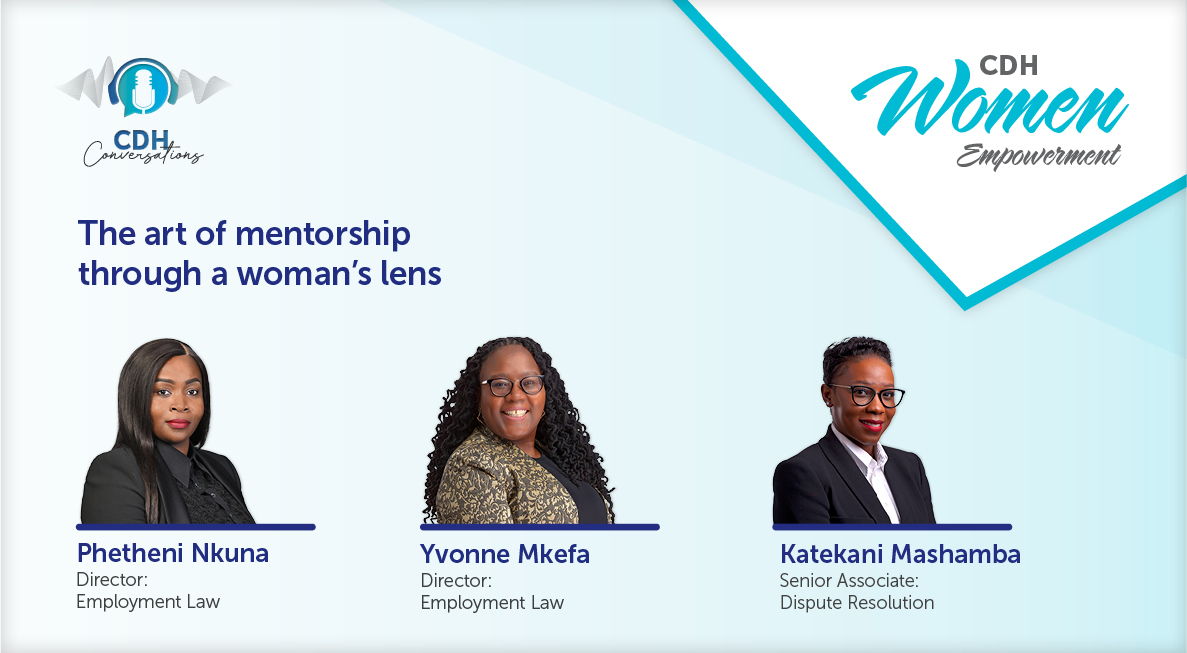Game-changing ruling: Companies in business rescue just scored a major victory over SARS
At a glance
- In a landmark decision delivered on 12 May 2025, the Supreme Court of Appeal (SCA) ruled that the South African Revenue Service cannot apply set-off of value-added tax (VAT) refunds resulting from trading activities post business rescue, against tax debts that were incurred before the commencement of business rescue proceedings.
- The SCA's decision underscores the importance of adhering to statutory provisions in business rescue and tax debt recovery. It provides a clear precedent for the treatment of tax liabilities and the application of set-off, ensuring that companies in distress have a fair chance at rehabilitation.
The crux of the matter revolved around whether tax liabilities, such as income tax for the 2017 year of assessment – arising from assessments before the start of business rescue, are considered pre- or post-commencement debts. The SCA also considered whether a VAT liability in relation to the 01/2018 tax period, which ended on 31 January 2018, being the date on which Henque 3935 CC, trading as PQ Clothing Outlet (Henque), commenced business rescue proceedings, comprised pre- or post-commencement debts. Henque found itself in a tussle with SARS over the classification of its income tax and VAT liabilities and the subsequent application of set-off of VAT refunds that became due after the commencement of business rescue, against these income tax and VAT liabilities.
The court’s decision was rooted in a detailed examination of the relevant statutory provisions and the nature of tax liabilities. The unanimous judgment, delivered by SCA Deputy President Zondi, provides clarity on the interpretation of tax debts in the context of business rescue.
Business rescue and the relevant facts
Business rescue, as defined under the Companies Act 71 of 2008 (Companies Act), aims to rehabilitate financially distressed companies by providing temporary supervision and a moratorium on the rights of claimants against the company. This process includes the development and implementation of a rescue plan to restructure the company’s affairs, debts, and liabilities.
Henque filed its income tax return for the 2017 financial year, claiming a loss and thus no income tax liability. However, SARS issued an additional income tax assessment in May 2018, after the commencement of business rescue on 31 January 2018. SARS argued that this additional income tax assessment constituted a post-commencement debt, against which the subsequent VAT refunds due to Henque could be set off.
Henque filed its VAT return for the 01/2018 tax period ending 31 January 2018 after 31 January 2018. The VAT return for 01/2018 reflected an amount owing to SARS. The VAT returns for the tax periods 06/2018 to 03/2019 were subsequently filed, and they reflected VAT refunds owing by SARS to Henque. SARS argued that the VAT liability for the 01/2018 tax period was a post business rescue debt because the VAT return for this tax period was due and payable after the commencement of business rescue proceedings.
The SCA’s decision and reasoning
The SCA disagreed with SARS’ interpretation. The court’s analysis began with the fundamental question of when an income tax and VAT debt originates.
The SCA held that an income tax liability is created at the end of a taxpayer’s year of assessment, even though the income tax return has not been submitted and no assessment has been issued. The court held that the re-quantification of the income tax debt in the additional assessment did not create a new liability. Instead, the liability for the 2017 financial year was owed at the end of that tax year, prior to the commencement of business rescue. Therefore, it was a pre-commencement debt.
Similarly, the court examined the VAT liability for the 01/2018 tax period.
In this regard, and before dealing with the SCA judgment in Henque, it is necessary to take a step back and understand the SCA’s finding in the case of Director of Public Prosecutions, Western Cape v Parker (103/14) [2014] ZASCA 223. In the Parker case the SCA found, inter alia, that a VAT liability only becomes “due and payable” to SARS in terms of section 28(1)(b) of the Value-Added Tax Act 89 of 1991 (VAT Act) when the net amount of VAT has been calculated in terms of section 16 of the VAT Act. On the other hand, the SCA held in the Henque matter that the VAT liability “arises” at the time of a relevant supply in terms of section 7 of the VAT Act on each individual transaction.
At first glance, these two SCA decisions appear to be at odds with each other. However, as to the meaning of “due and payable”, the Constitutional Court (CC) case of Amardien and Others v Registrar of Deeds and Others (CCT212/17) [2018] ZACC 47, which references its decisions in Road Accident Fund v Mdeyide [2010] ZACC 18 and Makate v Vodacom Ltd [2016] ZACC 13, is instructive. The CC held that “debts become due when they are immediately claimable and recoverable, and noted that in practice this will often coincide with the date upon which the debt arose, although this is not necessarily always so”.
In the Henque matter, the SCA stated that the submission of the VAT return (which was post business rescue) quantified the liability, but it did not create the liability. As authority for this finding that a VAT liability “arises” at the time of a relevant supply, the SCA referred to the CC judgment by Kriegler J in the case of Metcash Trading Ltd v CSARS Service [2001] (1) SA 1109 (CC), in particular paragraph 17 of that judgment, which held that:
“In principle VAT is payable on each and every sale; the VAT percentage, the details for its calculation and the timetable for periodic payment are statutorily predetermined, and it is left to the vendor to ensure that the correct periodic balance is calculated, appropriated and paid over in respect of each tax period.”
In the Parker case, the SCA clarified paragraph 17 of Kriegler J’s judgment to mean that:
“VAT is payable on every sale, and that details of the manner of calculation of VAT, the timetable for periodic payment, and the amount to be paid are statutorily controlled, and it is left for the vendor to ensure compliance therewith.”
Therefore, having regard to the Parker and Henque cases, as well as the CC cases, it makes sense that the SCA recognised that Henque was entitled to deduct VAT on supplies made to it, and held that all supplies made or received by Henque in January 2018, up to and including 31 January 2018 were pre-commencement claims. That is, a VAT liability becomes due and payable at the end of a tax period when the total output tax attributable to the tax period less the total input tax deductible in that tax period, results in a positive amount, even if it arises when each supply is made or received during the tax periods. This accords with section 16(3) of the VAT Act, which regulates the calculation of VAT payable for each tax period, and section 28(1)(b) of the VAT Act, which regulates when payment ought to be made to SARS. However, whether the VAT liability was created on or before 31 January 2018 when each supply was made, or on 31 January 2018 when the tax period ended, it would remain a pre-commencement debt.
The SCA held that Henque’s VAT return for January 2018 quantified the VAT debt but did not create it, and that the liability for the tax period 01/2018 arose when Henque made and received taxable supplies on or before 31 January 2018. Thus, the VAT liability was also a pre-commencement debt.
The VAT refunds only became payable by SARS to Henque after the commencement of the business rescue. These VAT refunds, the SCA held, were post-commencement credits due to Henque by SARS.
Set-off provisions and business rescue
The SCA then turned to the issue of set-off. Section 191 of the TAA allows SARS to apply set-off of tax refunds against outstanding tax debts. However, the Companies Act provides a moratorium on legal proceedings, including enforcement actions, against a company in business rescue. Section 133(1)(c) of the Companies Act specifically prohibits set-off to any claims against a company while in business rescue.
Given the import of section 154(2) of the Companies Act, the SCA concluded that SARS could not apply set-off of the post-commencement VAT refunds against the pre-commencement tax debts. Applying set-off in this context would circumvent the legislative scheme regulating business rescue and tax debt recovery.
Implications of the judgment
This decision has far-reaching implications for companies in business rescue and their creditors. It reinforces the protection afforded to companies under business rescue proceedings, ensuring that pre-commencement debts are dealt with according to the approved rescue plan. Creditors, including SARS, must adhere to the terms of the business rescue plan and cannot unilaterally apply set-off of post-commencement credits. The judgment also provides guidance when tax and VAT liabilities are created, when these liabilities are quantified, and when they are due and payable. The judgment clarifies that a tax debt exists by operation of law, regardless of when an assessment has been made or a VAT return is submitted.
In conclusion, the SCA’s decision underscores the importance of adhering to statutory provisions in business rescue and tax debt recovery. It provides a clear precedent for the treatment of tax liabilities and the application of set-off, ensuring that companies in distress have a fair chance at rehabilitation.
The information and material published on this website is provided for general purposes only and does not constitute legal advice. We make every effort to ensure that the content is updated regularly and to offer the most current and accurate information. Please consult one of our lawyers on any specific legal problem or matter. We accept no responsibility for any loss or damage, whether direct or consequential, which may arise from reliance on the information contained in these pages. Please refer to our full terms and conditions. Copyright © 2026 Cliffe Dekker Hofmeyr. All rights reserved. For permission to reproduce an article or publication, please contact us cliffedekkerhofmeyr@cdhlegal.com.
Subscribe
We support our clients’ strategic and operational needs by offering innovative, integrated and high quality thought leadership. To stay up to date on the latest legal developments that may potentially impact your business, subscribe to our alerts, seminar and webinar invitations.
Subscribe




